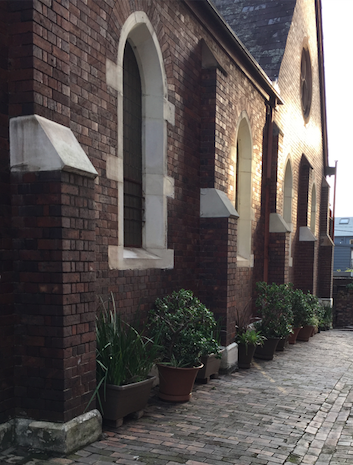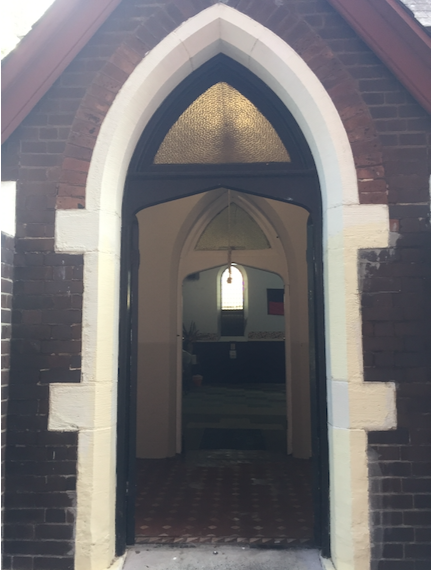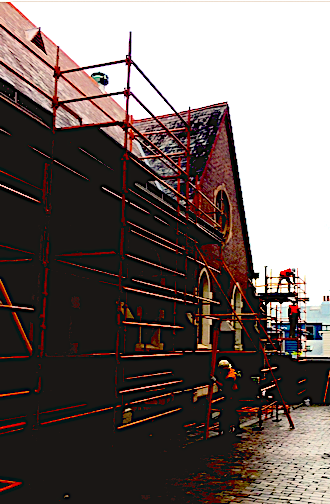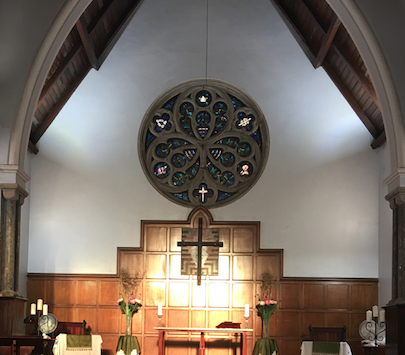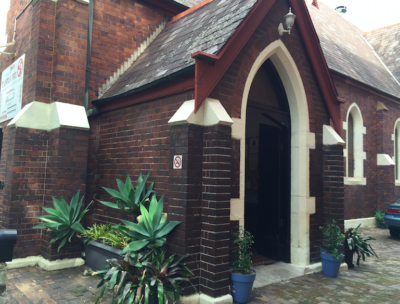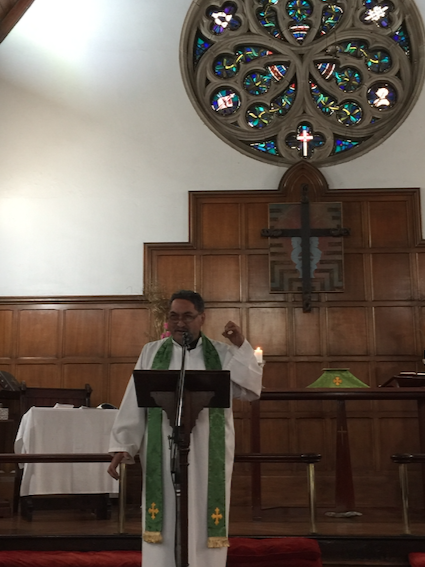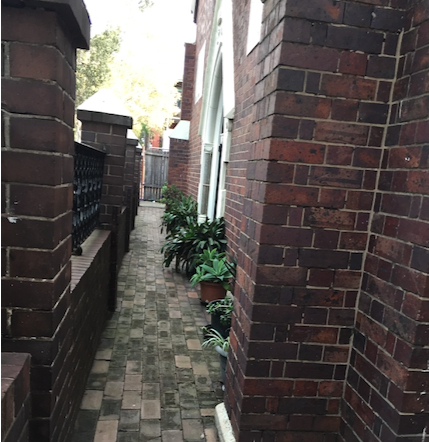
Discipleship Faith!
Readings:
Genesis 45: 1-15
Psalm 133
Romans 11: 1-2, 29-32
Matthew 15: 21-28
Sentence:
‘Woman, great is your faith! Let it be done for you as you wish.’ Matthew 15:28
Tena koutou katoa e te whanau o Te Wairua Tapu.
Yes, Jesus loves me….” “Yes, Jesus loves me….” “Yes, Jesus loves me, the Bible tells me so.”
Most of us oldies know that song well. For many of us it describes the Jesus of our childhood and our growing up. It’s simple and easy. And like I’ve mentioned before, it conjures up images of a sentimental faith and a sweet, cuddly Jesus. Those are images that still remain for many. That’s how we want the world to be, the way we want to live and who we want Jesus to be. The problem is that that kind of faith encourages a naive understanding about God, life and the world. And, it’s certainly not discipleship faith.
Look at what’s happening around the world and around us. Listen to all the politicians. Calculate the cost of innocent lives being tragically lost. The world is in a state of panic. Health v Economics. Freedom v Responsibility. Closer to home; balance the family budget, work full time, if you have a job, pay your mortgage or rent, raise your kids, keep your spouses and partners happy, and while you are at it, eat well and exercise. We all know what it’s like. We’ve each got our own story. We need a faith that can carry us through this life. Too often a sentimental faith becomes cynicism, which causes us to turn away and not deal with our problems, or it leaves us stuck and frozen in one spot not knowing what to do. Life is neither simple nor easy. So why should we settle for a faith that is the same?
We’ve all grown up since the days of singing “Jesus loves me” but has our faith grown up? Yes, Jesus loves us but faith is not about sentimentality and Jesus is definitely not always soft. Just ask the Canaanite women in today’s gospel. She’ll tell you all about it. She’s not one of the chosen people. She’s an outsider that the insiders don’t want in their space. Don’t she get? There’s just something about her that is not acceptable. On top of that she is a woman in a society in which woman have no real value or standing. To make matters worse she just won’t give up.
You see, life for her is neither simple nor easy. And sentimentality won’t cut it. She needs help so she comes to Jesus. Yes, Jesus loves her but he ignores her and then calls her a dog. So what we do with that? Many have tried to explain it away. They offer excuses trying to justify Jesus’ behaviour. None are really convincing. Maybe Jesus was just tired and having a bad day. Or he was teaching his disciples something. Really? At the expense of this woman and her daughter? Others say Jesus was testing her faith; as if her life wasn’t hard enough. Maybe Jesus didn’t understand the full extent of his mission and ministry. I suspect all the excuses only highlight how small our faith is. Regardless of why Jesus did what he did we don’t like it. It makes us feel uncomfortable. That’s not the Jesus we want but that’s the Jesus we get in today’s gospel. And sometimes that’s the Jesus we get in life.
There are days when we come before God and offer in prayer all that we are and all that we have. We speak, express our feelings, make known our needs and then nothing happens. We wait. We listen. And, God is silent. It’s like talking to the wall. If you’ve ever experienced that, then you know this Canaanite woman. “Have mercy on me, Lord, Son of David; my daughter is tormented by a demon.” But he didn’t answer her at all. Instead, he talked about her to the disciples. She heard every word. “I was sent only to the lost sheep of the house of Israel,” Jesus tells them. But for her, nothing. Totally ignored. No words, no gestures, no acknowledgment and no explanation. What do we do when that happens? Where do we go? Do we give up? Get angry? Leave the church? Sometimes in different pastoral situations people ask, “Why is God silent? Why am I ignored?” I wish I knew. I don’t have an answer. Even if I did I doubt it would be good enough. So I do the only thing I can do. Send them back to God. Just keep showing up. Don’t leave the church. Regardless of what God does or doesn’t do, make sure you show up. Even if it seems God doesn’t. That’s what the Canaanite woman did. This sounds very much like the women I grew up around. They never gave in and they never took no for an answer!
And yet, Jesus was silent. She could have gone home, argued, or asked, “Why?” But she didn’t. Instead, she came closer to Jesus, fell before him, and kept on worshipping him saying, “Lord, help me.” That doesn’t make sense but that’s what she does. This woman who was ignored and seemingly rejected by Jesus moves even closer and begs like a dog. She continues to show up trusting that somehow it’s enough to just be there before him. At some point he has to act. She doesn’t know when or what he will do. She only knows that she will be there when he does do something. Then he answers. “It’s not fair to take the children’s food and throw it to the dogs.” Jesus literally called her a dog, an animal. Those are hard words and you wouldn’t get away with that today. But maybe they aren’t about Jesus or the woman. Jesus is naming the reality of the world in which they both lived. It was a hard world. The reality is that there are children and there are dogs. We see it everyday. Some have more while many don’t. Some are in and some are out. For some, life flourishes while many struggle to make it through another day. Children and dogs.
They didn’t make it that way. It was like that before either one of them were born. It was that way before they came on the scene and it’s still that way today. That doesn’t make it right and we should do all we can to change it. However, that is the world in which we must pray, live out our faith and we must learn to continually show up no matter what. That’s the world in which Jesus and this Canaanite women meet. Life is neither simple nor easy and dogs don’t eat the children’s food in this world. The woman knows this. She even agrees with Jesus. “Yes, Lord, yet even the dogs eat the crumbs that fall from their masters’ table.” She has again found a way to show up and be present even when it seems everyone has left the room and everything is against her. This time Jesus speaks and acts. “Great is your faith,” he tells her. That very hour her daughter is healed.
So what do we do with that? Some say she finally wore him down and Jesus gave in to get her to shut up and go away. That sounds more like what we would do. Some say she was rewarded for her persistence. Maybe, but you and I both know of persistence with no reward. So what’s the difference? Others suggest Jesus realised he was wrong and changed his mind. Maybe. I don’t know why Jesus acted the way he did. Maybe we don’t need to know. There’s a lot of maybe’s.
Maybe this story is not even about Jesus. But it’s about us, our faith, and our world. Life is tough. Deep and abiding faith is a real struggle. The world is broken and divided into children and dogs. In the dog days of life all we can do is continue to show up and that’s enough. God may or may not do what we want. It doesn’t really matter. To not show up is to only deepen the division between us and God. To turn away means that we won’t be there when God does show up and act. And we will miss it. We will miss the moment of connection, healing, words of forgiveness and the acts that transform. We will never know that Jesus really does love us unless we continue to be present and wait for him to speak to us. Discipleship faith demands us to stay in for the long haul. Amen.
Archdeacon Kaio Karipa
Collect:
God of compassion, you love every person without exception. Turn our hearts so that we may love our neighbour. Remove from us everything we use to exclude our sisters and brothers. Guard the door of our lips so that what we say may be worthy of our calling as your people. Through Jesus Christ our Liberator, who is alive and reigns with you, in the unity of the Holy Spirit, one God, now and forever. Amen
The Venerable Kaio Karipa
Chaplain

